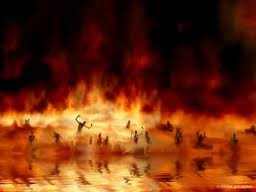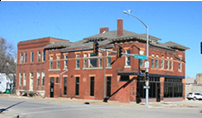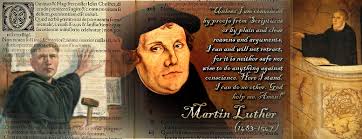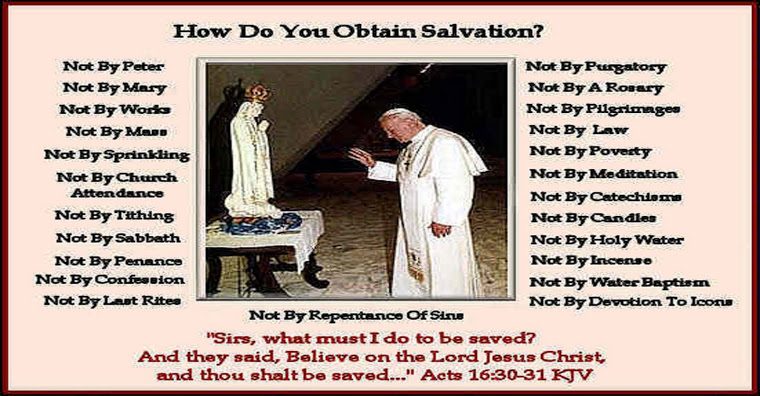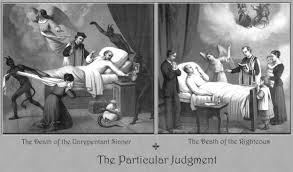Charles Fox Parham
& the Annihilation of the Wicked
Posted on the Internet 1 September, 2010
The author of this unsigned post to the "Old Waymarks" Pentecostal web site did not agree with Parham's teaching of "no hell" but he or she does give his reasoning and some of his 27 texts that Pastor Charles Parham used -- Dr. Bob Holt,MD
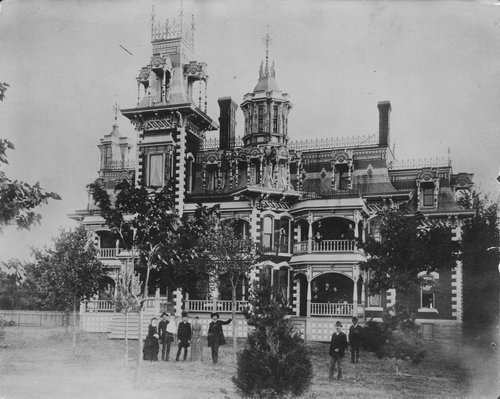 |
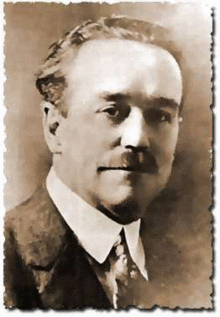 |
 |
|
"Stone's Folly" --Parham's Bible school in Topeka, Kansas |
Charles Fox Parham |
Agnes Osman 1st to speak in tongues |
Charles Fox Parham was theologically eclectic and possessed a sincere, if sometimes misguided, desire to cast tradition to the wind and rediscover an apostolic model for Christianity. Though he was intimately involved in the rediscovery of the Pentecostal experience, evidenced by speaking in other tongues, Parham’s personal tendency toward ecclesiastical eccentricity did much to remove him from the center of influence in the fledgling Pentecostal movement. One of his most controversial doctrines was the annihilation of the wicked, or the idea that the eternal punishment of sinners was simply death. Pentecostals broadly rejected this doctrine, and some boldly anathematized Parham as a heretic.
As a child, Parham was familiar with the Bible but had no strong religious influence in his life and claimed not to have heard “but one or two preachers before reaching the age of thirteen years . . . “ He was proud of this lack of spiritual training, believing that it provided him with a mind open to scriptural truth: “Thus with no preconceived ideas, with no knowledge of what creeds and doctrines meant, not having any traditional spectacles upon the eyes to see through, I scarcely knew anything about church and Sunday School. These facts are stated to show that any early Scriptures were entirely unbiased.” It certainly may account for some of his religious impressionability but hardly recommends him as theologically competent.
Parham’s ideas about the annihilation of the wicked were adopted from his wife’s grandfather, a disfellowshipped Quaker named David Baker. While working under the auspices of the Methodist Episcopal Church, young Charles Fox Parham held a revival at the Pleasant-Valley School House near Tonganoxie, Kansas and was an invited guest in the home of Mr. Baker. Through his own reading of the Bible, David Baker arrived at the conclusion that “eternal torment for the wicked” was not biblical. During the evangelist’s sojourn in Tonganoxie, the pair spent many hours studying the Scriptures, and Parham became convinced of Baker’s perspective. Thereafter, Parham also taught “the destruction of the wicked, though his teaching was rejected by many, and brought much opposition and bitter persecution.”
In the inaugural issue of his paper The Apostolic Faith, Parham propagated the doctrine in an article entitled
“Questions on Immortality.”
In catechetical style, Parham presented 37 questions on the topic, answered by a simple Bible verse. Following his line of reasoning, Parham teaches that
1) immortality belongs to God alone (I Tm. 1.17);
2) immortality is imparted only to the righteous (Rom. 2.7);
3) Sin brings death (Rom. 6.23); and
4) both the body and soul are destructible (Mt. 10.28).
The audience is left to conclude that the sinner is damned only to death. Interestingly, Parham never uses the word “hell” in the article and does not address the many biblical references to eternal punishment.
William Joseph Seymour, who received training in the rudiments of the Pentecostal baptism under Parham in Houston, Texas, strongly denounced his mentor’s perspective in the January 1907 issue of his own paper published in Los Angeles, also named, The Apostolic Faith.
Seymour appeals to the Lukan parable of Lazarus and the rich man to establish the premise that “ . . . there is no annihilation in God’s Word for the wicked, but there is a blazing and burning hell awaiting them.”
Seymour says that if the destruction of the wicked were true, “then this rich man would have been burned into ashes, and there would be no more of him.” Seymour worries after those taken in the doctrinal error: “Many who have preached a no-hell Gospel will find out better when they die and come to judgment . . . May God help us to turn from sin and wickedness and not try to wrest the Scriptures, but take them just as they are written.” The entire article is a clear renunciation of the heresy of “no-hellism” and an impassioned plea to those who may have a false security about such a finite afterlife to come to repentance, paying heed to “God’s Holy Ghost preachers that are testifying to the Blood that cleanses from sin and warning of an everlasting hell.”
Ultimately, Charles Fox Parham’s errors isolated him from the greater Pentecostal movement. His meager remnant following based in Baxter Springs, Kansas continue to teach the annihilation of the wicked, but the doctrine is not espoused by any major Pentecostal body. In fact, “hellfire and brimstone” has become a cultural euphemism for pulpit-thumping Pentecostal preachers determined to spare sinners the awful torments of eternal damnation. Today, we still agree with that old-time maxim: “There is a heaven to gain, and a hell to shun” and continue our mission to see souls filled with the fires of Pentecost that they may escape the fires of Hell.
